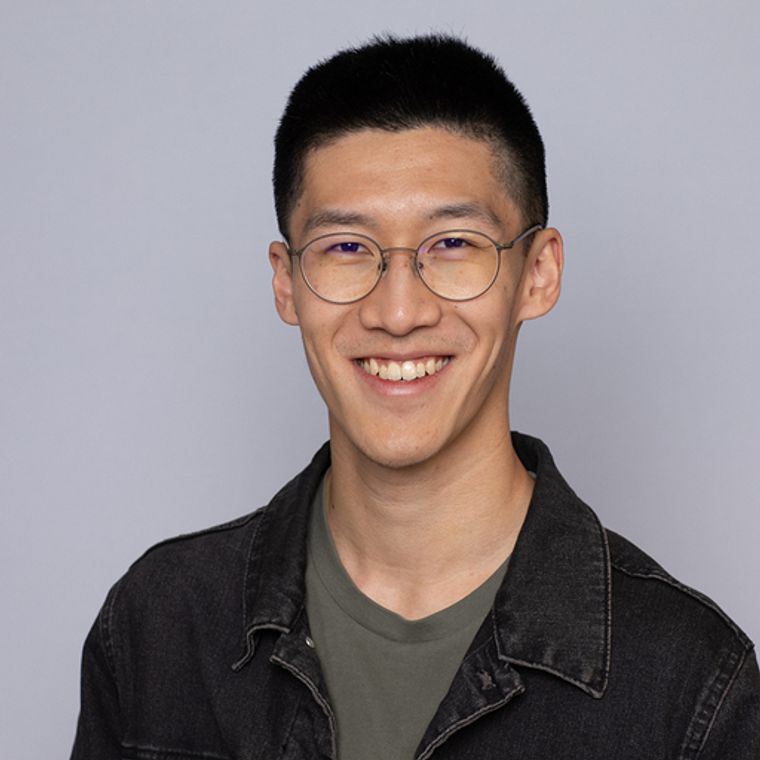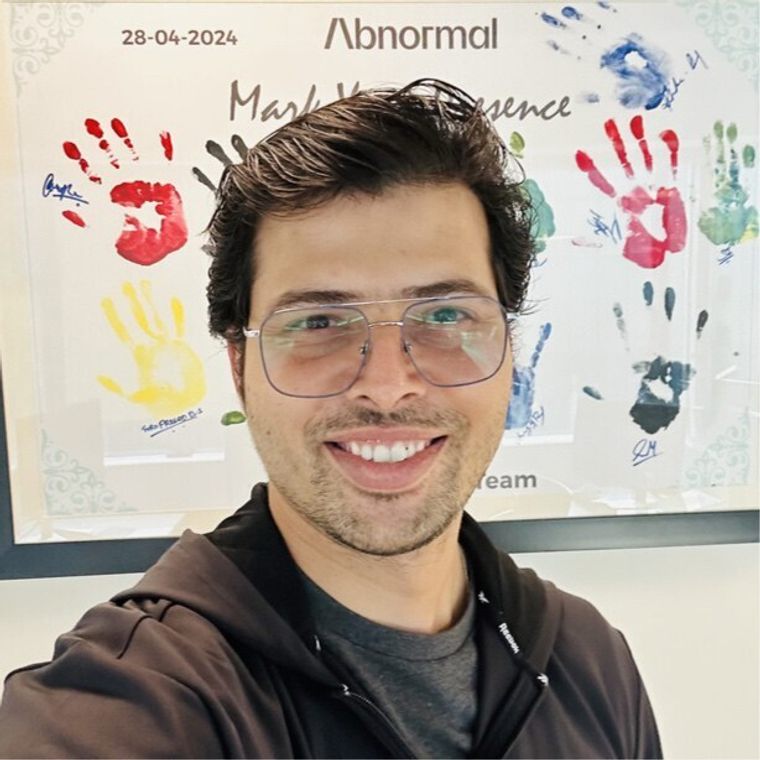Meet De Sheng Chuan, Staff Software Engineer, Tech Lead
De Sheng Chuan describes himself as "resourceful, diligent, responsible" - qualities that have powered his rapid rise from Junior Software Engineer to Tech Lead in a few years. Based in Singapore, he's now leading the engineering systems that power URL Rewriting while shaping how Abnormal approaches AI-augmented development across his team.
August 18, 2025

From Junior to Tech Lead in 30 Months
De Sheng's career trajectory at Abnormal demonstrates what's possible when talent meets opportunity. "I started at Abnormal as a Junior Software Engineer, and in about 30 months, I grew into a Senior Engineer before stepping into a Tech Lead role." Now he builds the engineering systems powering Abnormal's URL Rewriting product, focusing on "making sure we develop a reliable, scalable system that can adapt to evolving product requirements."
The technical scope of his current role reflects both Abnormal's scale and his expanded capabilities: designing frameworks that enable rapid shipping of multiple products while maintaining architectural integrity across the platform.
AI Transforming Engineering Velocity
As a Tech Lead, De Sheng has a unique perspective on how AI is reshaping software development at Abnormal. "AI boom is coming. AI isn't perfect right now. There are a lot of pitfalls, but that also means there's a lot of skill sets you need to learn to work well with it."
His approach is pragmatic but forward-thinking: "AI isn't perfect right now, but that also means there's a lot of skill sets you need to learn to work well with it. It is definitely gonna improve. There is a lot of runway for it to eventually be the state where the search engine is right now."
He sees AI as fundamentally changing the engineering role: "Instead of having, like, eighty to ninety percent of our time spent doing all the, like, coding work, mundane work, we get to offload a huge portion of that time and allow the AI to do it for us, like, things that we consider more mechanical, which allows us more time to do this kind of problem solving and refining the problem statement and making sure that we are building something that really drives value."
Customer Obsession in Action
De Sheng's engineering philosophy reflects Abnormal's core values:
"Customer Obsession is like a huge capital C that's bold. We are customer first company. We're not an engineering company, not a product company. And I think that really rings true with the way we build our products."
This customer focus drives daily decisions: "What I really care about is the problem that customers have and what tools we have that's best for the problem at hand." His motivation comes from "collaborating with my product manager to understand top customer pain points, prioritizing them, and figuring out efficient ways to solve them. Abnormal's customer obsession is real, you can see it in how we focus on delivering value."
Building Architecture for Impact
One project exemplifies De Sheng's approach to technical leadership: providing the data that powers Knowledge Bases, giving security teams visibility into Tenants/Apps, security posture, and third-party vendor risks. "We had a tight timeline to ship multiple Bases, and we built a framework that enabled us to do so efficiently. It was a great example of how architectural decisions in the design phase can significantly impact the final product."
This framework thinking extends to his leadership style: "My main priorities as a Tech Lead is to ensure the team can operate largely independently. We hold bi-weekly context-sharing sessions and maintain high standards of documentation. Engineers rotate across different focus areas every quarter, so they develop a broad understanding of the system."
Leading Through Code Quality
De Sheng's approach to code reviews reflects his philosophy on engineering excellence: "I encourage engineers to review each other's work rather than relying on me to unblock them. I review all code changes and past reviews to ensure two key things: The code meets a high bar of quality, and engineers provide thoughtful, constructive feedback that raises that bar even higher."
His AI integration strategy focuses on enabling better engineering practices: "My role is to equip engineers with the skills to use AI effectively. I focus on three key areas: Connecting technical decisions to customer value, AI can suggest solutions, but engineers must validate them. Breaking down complex problems into simpler ones, AI performs best when working within a structured problem space. Prioritizing consistency over cleverness, structured and well-documented code allows AI to provide better recommendations."
"The AI boom is coming. So if you don't get on it right now, you are going to fall behind very, very quickly. And the wonderful thing about Abnormal is we're encouraging people to use it to figure out how to make ourselves more productive."
The Reality of Tech Leadership
De Sheng dispels common misconceptions about tech leadership: "Many think the role is 100% technical, but in reality, it also involves representing the team, managing stakeholders, and balancing technical feasibility with business priorities."
This balance requires both technical depth and strategic thinking: "My goal is to be in a role where I can make technical decisions that have a meaningful impact on the company." The learning curve has been steep but rewarding: "Over the past year, I've learned a lot in this position, and I plan to continue growing in this direction."
Abnormal's Learning Environment
What sets Abnormal apart, according to De Sheng, is the company's commitment to AI-powered productivity: "The wonderful thing about abnormal is we're encouraging people to use it to figure out how to make ourselves more productive. We are given this wonderful sandbox to learn the skill set."
This learning culture extends beyond AI: "The company provides plenty of learning opportunities through a mix of challenging work and constructive mentorship. This has been instrumental in my growth from a Junior Engineer to a Tech Lead."
His advice reflects this growth-oriented culture: "Abnormal is a place where you'll be challenged but also supported. The strong sense of camaraderie and mentorship here makes it a great environment for growth. The customer-first mindset you develop here will be invaluable in your career."


